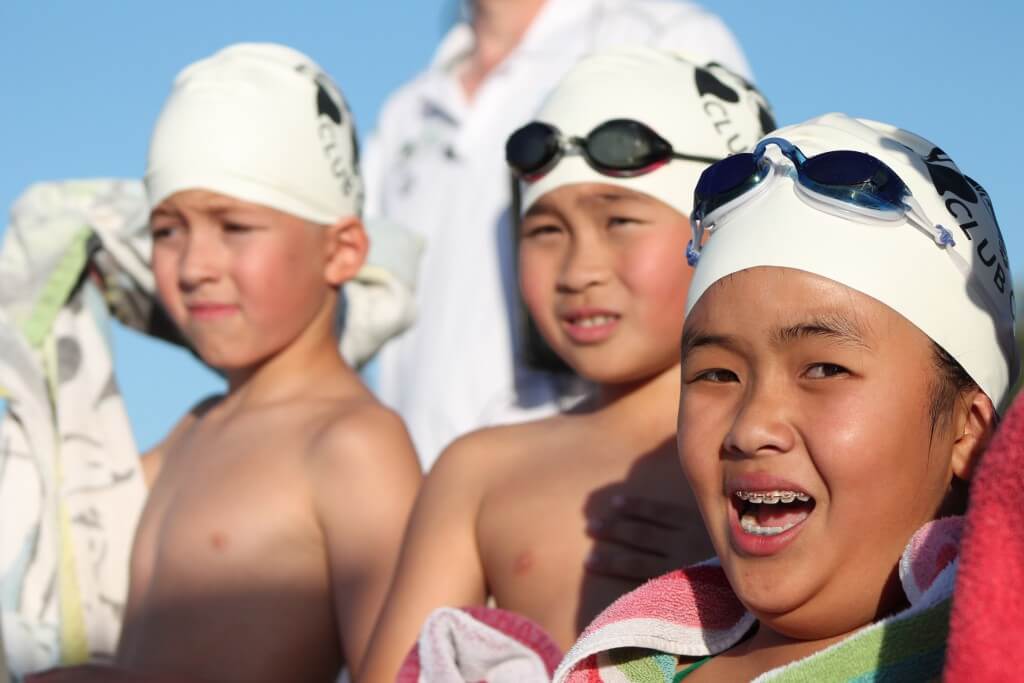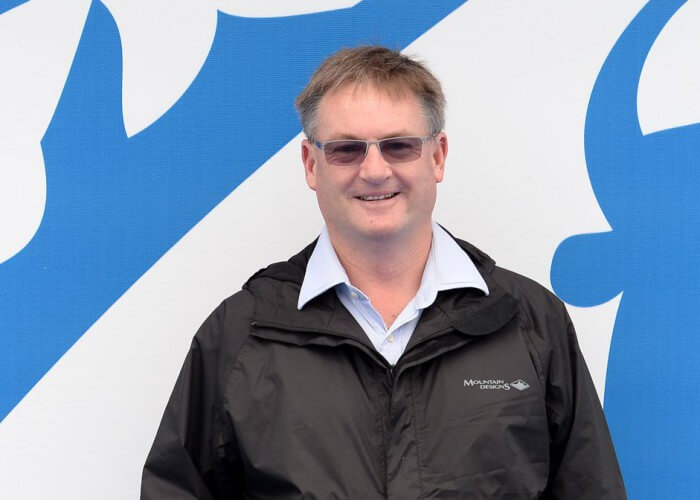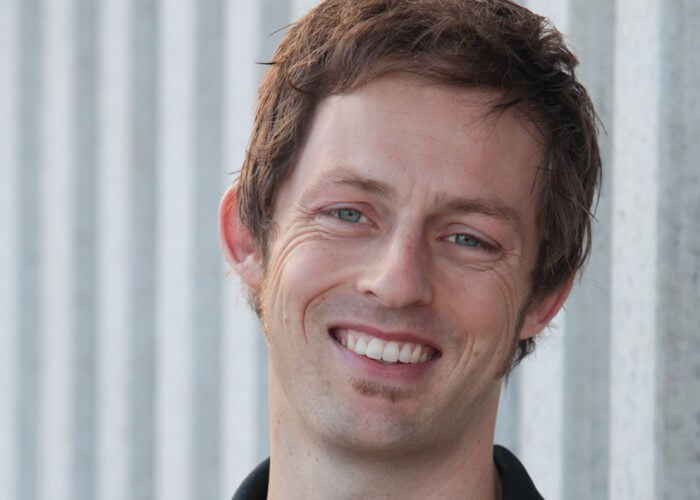Long Term Athlete Development, Not Winning, Key to Age Group Training

By Dave Crampton, Swimming World contributor
Long term athlete development (LTAD) is a widely accepted concept within high performance sport on how to best train and develop junior athletes appropriately for elite sport competition.
Done well, it is focused on athletes, driven by coaches and supported by parents, administrators and sports organisations.
However it is misunderstood by many.
Top swimming coach Wayne Goldsmith, who was in New Zealand conducting workshops for coaches and parents last month, believes sports people are motivated too much by recognition, rather than long term achievement through hard work.
He says the job of a coach is to create an environment where an athlete can realise their dreams so that an athlete can give ‘everything they are capable of giving’.
Goldsmith, who has had more than 25 years of experience working with some of the world’s best swimmer and coaches, says a LTAD approach is more about adopting a strategic athlete-centred approach to swimming development, as opposed to working within a system.
“The essential ingredient is uniqueness and individual difference,” he says. “[Top swimmers] are not products of a system.”
“I’ve never seen a fool-proof system.”
Most recently the debate has become an issue of coaches choosing winning or development, as if they are mutually exclusive. Coaches who develop swimmers the right way don’t have to choose either or because winning and development go hand in hand.
Dr. Craig Harrison, the director of athlete development at AUT Millennium, a world class environment in New Zealand for high performance sports training, says in terms of importance, LTAD is ‘everything’, with a focus on process leading to achievement, as opposed to one on outcomes.
“We are prioritising outcome… and getting a little bit lost. Winning is definitely over-prioritised at the young ages,” he says.
He says that achievement is more about ‘getting better’.
“That drives people long term.”
But getting better is a process. A long term approach is not about getting age group and youth swimmers racing as quickly as possible as young as possible. Rather it is a focus on correct training, competition and recovery throughout their career, paying attention to their growth and development years.
While coaches want their age group and youth swimmers racing as quickly as possible, this will benefit swimmers only with talent and commitment while adhering to LTAD principles.
While maximizing sporting talent is an important goal of long-term athletic development, Goldsmith warns that physical talent is over-rated.
The only thing that physical talent does is get you recognised,” he says. “Hard work beats talent until the talent decides to work.”
Performance cannot be accurately assessed by times and results achieved, but by determining how closely a swimmer follows their race plan and how close they have gone to achieving their potential.
To do this requires what Goldsmith calls ‘performance practice’ – a form of deliberate practice.
“‘Performance practice makes perfect – it’s the way that you do it not what you do,” he says.
It is this deliberate performance practice that grounds the learning process, not short-term outcomes.
But even if a race plan is followed perfectly, a swimmer’s body is not always capable of producing personal bests. A personal best is a result, it is not a process. Too high an emphasis can be placed on the achievement of personal bests.
The only thing swimmers are in control of in producing their best possible result is getting the process correct.
“Many don’t look at the next step,” Dr. Harrison says.
Focussing on the process rather than the result will make the sport more enjoyable for all parties, while also being more likely to produce positive competitive results over the long term
The LTAD model has highlighted the importance of considering individual variations in biological maturation instead of chronological age when programming for youth
There is conflict in that the competitive environment seeks and rewards rapid development, whereas a long term athlete development process attempts to ‘delay’ high performance long enough for all athletes to arrive at the same point simultaneously.
If a long term approach to training is not adopted, there is likely to be a plateau in performance when growth and development slow significantly, which may affect some swimmers performances.
At this point the short term training approach cannot be reversed, Dr. Harrison says, and swimmers often drop out before achieving close to their potential.
“They`ll plateau and get to the point where they disengage as they are not winning as they are not reaching the outcome goals they have set.”






Allan Reid
This could apply to all sports in regard to talent and hard work, it being a process and must-win-at-all-cost mentality.
Great read
Emma Gilson
Sue Perkins
Tracey Jones
Zane Rademaker
Then if this is true then why do they continue to drop the age group qualifying times for championship meets. I believe these times drop at a dramatic rate each year that the swimmer gets discouraged and drops out because s/he does not believe they are not good enough. I believe the sport needs to look into why this is the case.
The alternative is to continually allow MORE kids at the same level, which makes meets bigger, longer, and not necessarily more competitive. That’s not fun either, and people would still quit.
I don’t think that raising the bar discourages kids, it makes them learn to work to get what they want!
I swam for 20 years and have been coaching, full-time, for 15. I whole heartedly believe that teaching kids to work hard is the driving force behind all age group standards and achievement incentives.
Age group standards get faster (just like national standards are getting faster) because the sport population has blown up. Over 35% increase in 13 and overs alone in the past eight years.
Calum Macgregor
What happens when they get to the long term and still not win? At what age do you say enough? 30?
Be thankful that you are heathy because diabtetes is on the rise. Kids need to be encouraged to commit to a life time of activity and sports is the most fun.
Why would you say “enough”? Swimming is great. All that’s required is a change of mind-set – if it really is ‘late in the day’ then swim for fun and fitness and the joy of performing well.
LTAD is dependant on many factors and is open to interpretation, young athletes both talented and not so, respond only to the quality and delivery of the programme they perform under i.e. long term success has an high dependency on quality of teachers and coaches and the programmes they run, the attitude and temperament of the athlete, parental guidance, funding both personal and local authorities, pool time accessibility etc., irrespective of talent, I ask this question… does anyone really believe all past world and Olympic champions have achieved this reaching their full potential ? maybe some have, many I believe have not, why….because there are too many obstacles in their way on their journey through sport, the ones with the most obstacles are the most disadvantaged, successful or not. Many points raised by Dr Craig Harrison make good sense, get the skills right early, pay massive attention to detail and don’t compromise long term success for short term glory. should a swimmer for example swim 50m in a short course pool before perfecting the turn? in my opinion, NO. Too many swimmers are turning poorly too often JUST TO SAY I SWAM 50M !!.
Success will come faster and for longer, but only if the head coach has everything in place to make it happen, but doing it in the correct order is crucial.
My kids moved from qld to sopac and went down two levels in squad. I was not upset because technique improvement will get better speeds.
Everyone should read Dr. Rushall’s critique before coming to any conclusions about LTAD.
http://coachsci.sdsu.edu/swim/bullets/LTAD38.pdf
Excellent paper although hard work can’t be sacrificed totally.
Very intrigued why my fiest comment is still awaiting moderation after two days.
Hard work can NEVER be sacrificed. It just has to be the right kind of hard work. Less than hard work never got anyone anywhere anytime.
Sorry, Clive. Been super busy here with World University Games time difference and your comment slipped through the cracks. Just approved it.
I’m an OK guy really. You,can put me on auto-approve 🙂
Clive, the article was written taking into account of all the articles in the link you posted ( which I`d recommend everyone read BTW) . That’s why I focused on LTAD as a concept, not the more restricted “model” per se.